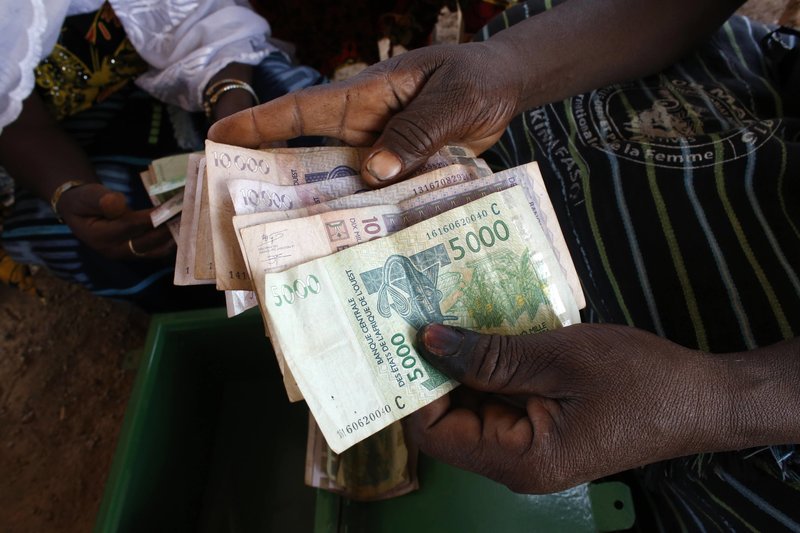
|
新兴经济体中有大约3.65-4.45亿个中小微企业。它们是当地经济的支柱,也是联合国可持续发展目标,可以说它们是促进包容性增长、让全民获得体面工作以及创新的主要动力。 然而,说到在今天的经济中发展壮大,有太多的小企业主仍无法接触到他们所需的关键网络和资源。 在和小商铺所有者沟通时,我们了解到他们实现发展的最大障碍就是平价信贷渠道。截至2017年,70%的发展中国家女性所有的中小企业都无法获得足够资金。它们代表的是每年3000亿美元的信贷缺口。 在填补这个缺口方面已经取得了一些进展。各国政府已将改善数字金融服务供应情况作为首要任务,而且有50个国家设定了正式目标。私营公司也参与了进来,和政府以及非政府组织一起向更多人伸出援手,同时试行新的模式。 不过,要上规模并实现长期增长,关键就在于把各个行业的工具、数据分析以及合作关系结合起来,从而改变小企业的融资模式。比如说,万事达(Mastercard)和联合利华(Unilever)已经在肯尼亚携手推出新的微商贷款模式。我们从一个小店的经营说起:店主从经销商那里购买产品,并且需要把所有商品都卖出去,以便购进其他货物并养家糊口。这个行当的现金特性基本上扼杀了他获得信贷的能力,而信贷正是公司成长的必需品。 万事达和联合利华携手创立了一个安全的数字平台,供商家获得并使用由当地银行提供的低风险小微信贷。借助供应商和当地经销商提供的数字化信息,我们可以分析这些商家的采购历史并把它作为准信用指标。 这个平台能让小店店主、他们的家庭乃至他们所在的社区变得焕然一新。举例来说,单身妈妈露西有两个孩子,她开店已经10年了,而且这个商店是她唯一的收入来源。参与上述项目意味着露西可以进更多的货,可以使用标准信贷服务,还可以吸引更多的顾客。现在她对实现家庭经济目标很有信心,包括承担两个孩子的教育费用。同时,她也在为社区提供更好的服务。 我们的目标是长期包容性增长,而且正是出于这个原因,我们才在两方面下同样大的力气,一是培训这些企业主学会财务和库存管理,二是传授他们营销技能和技术,以便吸引消费者,提高销售额。 我们希望其他公司和私营行业龙头加入进来,和我们共同推动包容性增长,并且产生能真正带来变化的网络效应。这可不是慈善。做好工作和做善事的想法并不相互排斥。企业要明白,从商业角度讲,它们非常有理由通过合作让人们走向富裕。 许多社会问题,比如公用事业管理、交通运输、农业、学校、旅游和医疗保健,都可以通过恰当的合作顺利予以解决。我们需要携起手来,以确保一个人也没有落下。(财富中文网) 彭安杰是万事达总裁兼CEO。保罗·波尔曼是联合利华CEO。 译者:Charlie 审校:夏林 |
There are somewhere between 365 and 445 million micro, small, and medium enterprises (MSME) in emerging economies. They are the backbones of their local economies and a key driver of the United Nations Sustainable Development Goals—promoting inclusive growth, decent work for all, and innovation. Yet too many small business owners remain disconnected from the vital networks and resources they need to thrive in today’s economy. When we speak to small shop owners, we hear that access to affordable credit is their biggest barrier to growth. As of 2017, 70% of women-owned small- and medium-sized businesses in the developing world do not have access to adequate financing. This represents a $300 billion credit gap each year. Some progress has already been made to close the gap. Governments around the world have made it a priority to improve the availability of digital financial services, with 50 countries setting formal targets. Private companies have also stepped in to work with governments and NGOs to reach more people and run trials on new models. But to achieve scale and long-term growth, it will be crucial to bring together tools, data insights, and partnerships from across different sectors to change the model of small business financing. For example, Mastercard and Unilever are working together on new lending models for micro merchants in Kenya. The journey starts with a storeowner who is buying products from a distributor and needs to sell all their products in order to buy some more supplies and feed their family. The cash nature of the business essentially prohibits their ability to obtain a credit line, which is necessary to grow the business. Our companies have combined forces to create a safe digital platform for merchants to access and use low-risk micro-credit, which is underwritten by a local bank. By digitizing information from suppliers and local distributors, we can analyze merchants’ purchase history and transform it into a proxy for credit. The impact of such a platform on small shopkeepers, their families, and their wider communities can be transformative. For example, Lucy, a single mother of two, has been a retailer for 10 years. Her store represents her only source of income. Participation in this program means that she can buy more products, giving her access to formal credit services and increasing her customer footfall. She now feels confident about meeting her family’s financial needs—including her children’s education—and is providing better service to her community. Inclusive growth over the long term is our goal, which is why we are placing equal emphasis on also providing these business owners with training on how to manage their finances and inventory, as well as giving them the marketing skills and techniques to attract customers and drive sales. We want other companies and private sector leaders to join us in this collaborative approach to inclusive growth—and create a true network effect that will bring about change. This is not about philanthropy. The ideas of doing well and doing good are not mutually exclusive. Companies need to understand that there is a strong business case for working together to put people on a path to prosperity. Many societal challenges—such as the management of utilities, transportation, agriculture, schools, tourism, and health care—can be tackled successfully through the right partnerships. We need to work together to ensure no one is left behind. Ajay Banga is the president and CEO of Mastercard. Paul Polman is the CEO of Unilever. |






